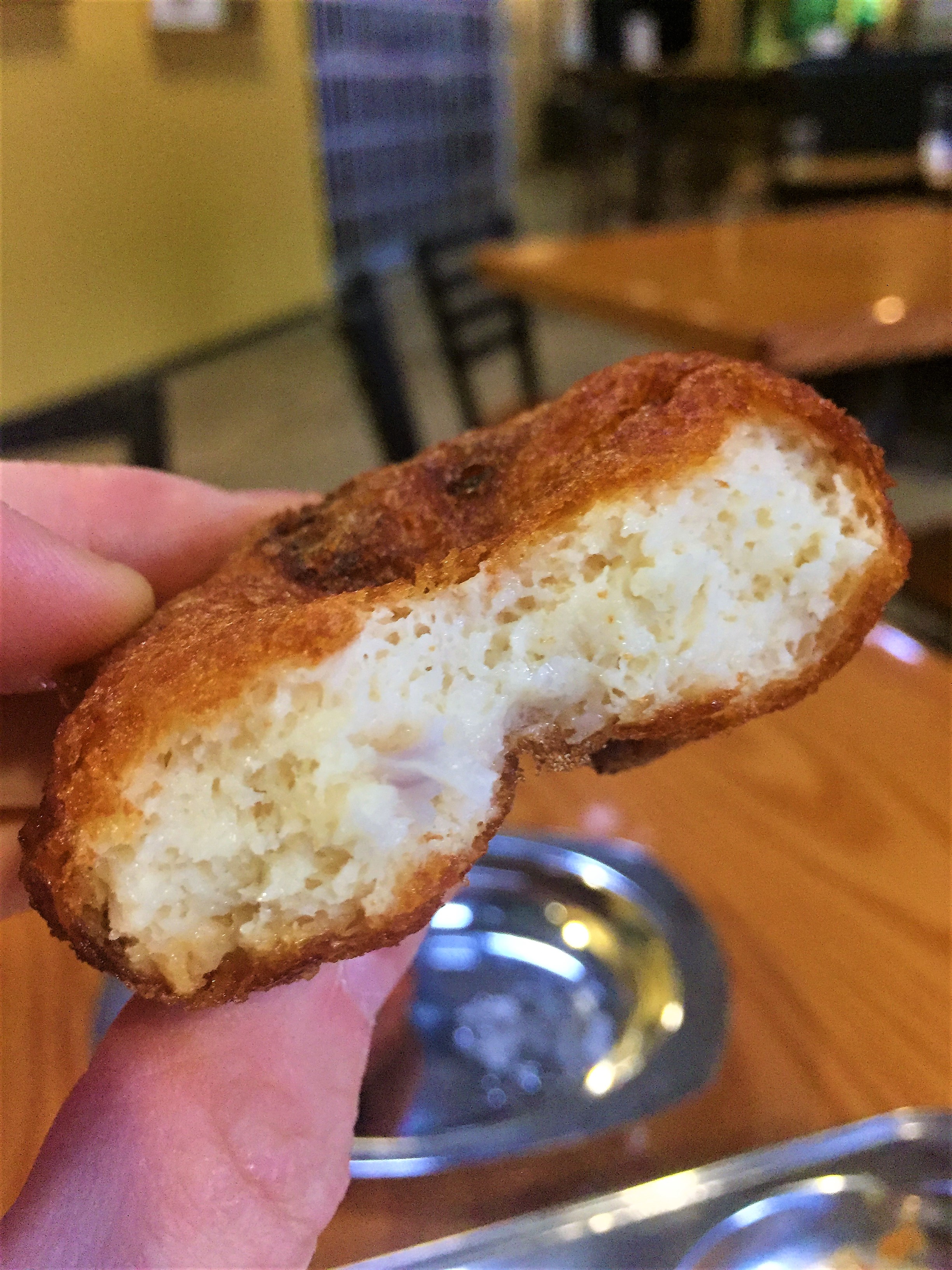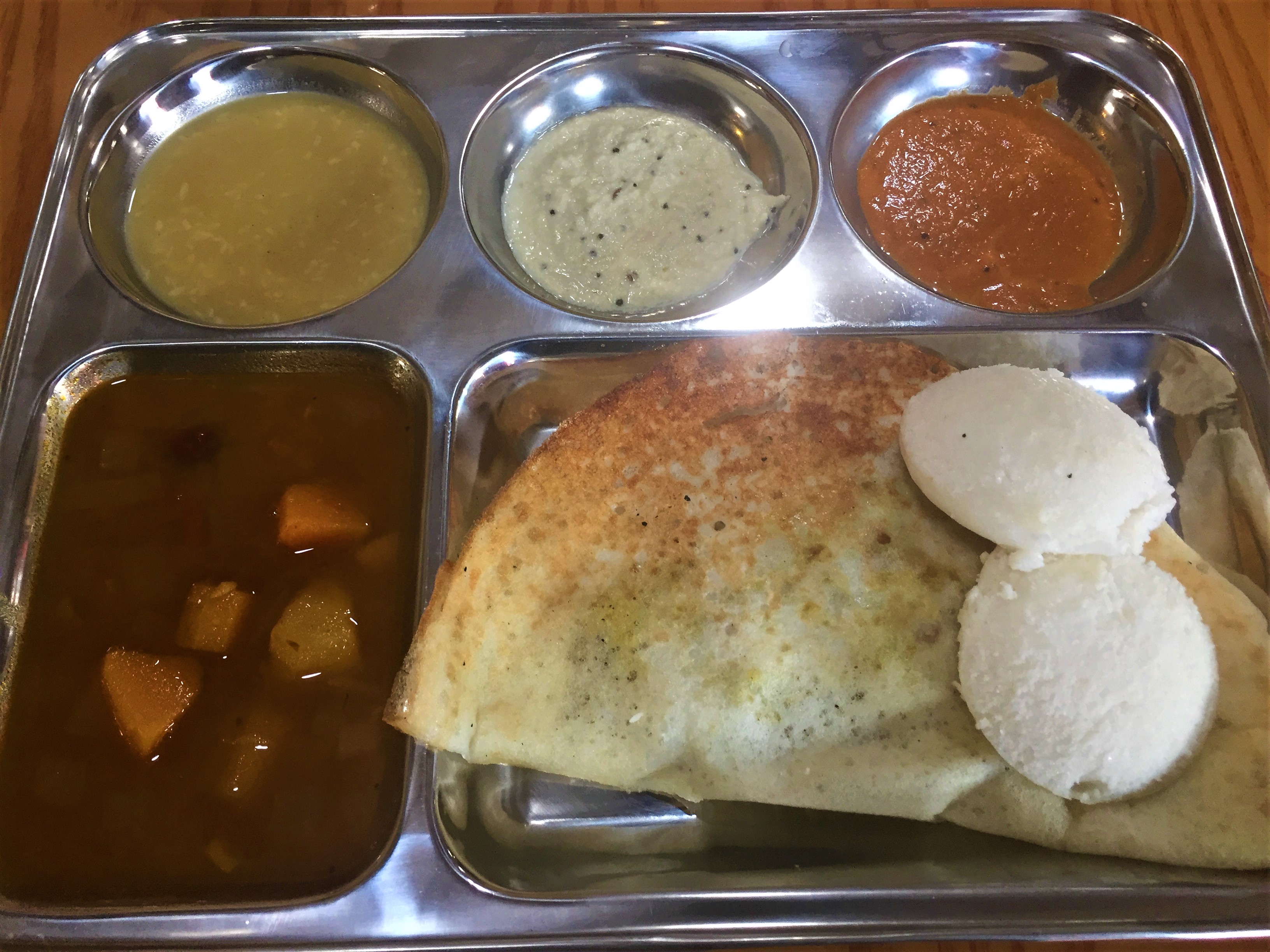Maya’s South Indian Cuisine inside downtown Reno’s West Street Market is bona fide proof that the southern United States does not have a monopoly on southern comfort food. Admittedly, soul food from the southern U.S. and South Indian dishes are very different, but the comfort they both provoke is noteworthy.
Chef and owner of Maya’s South Indian Cuisine, Anitha Chiranjivi uses generations-old family recipes in her restaurant. She schooled me on what makes South Indian cuisine distinct from other Indian restaurants in town that specialize in North Indian dishes. One such restaurant specializing in dishes of northern India is Thali, which shares a space and kitchen with Maya’s South Indian Cuisine.
 Chiranjivi said that many South Indian meals call upon lentils for protein and rice for complex carbohydrates. Some common ingredients and flavors include: turmeric, cumin, coconut, onion, mild to medium chilies, sour and tangy fermented foods, jaggery (non-centrifugal cane sugar), potatoes, garlic, and ginger. The food at Maya’s is focused on light, inexpensive dishes that exemplify how tasty organic, vegan, and gluten-free foods can be.
Chiranjivi said that many South Indian meals call upon lentils for protein and rice for complex carbohydrates. Some common ingredients and flavors include: turmeric, cumin, coconut, onion, mild to medium chilies, sour and tangy fermented foods, jaggery (non-centrifugal cane sugar), potatoes, garlic, and ginger. The food at Maya’s is focused on light, inexpensive dishes that exemplify how tasty organic, vegan, and gluten-free foods can be.
Maya’s South Indian Cuisine gets its name from Chiranjivi’s first daughter who just celebrated her first birthday. It might seem unusual to some that Thali and Maya’s operate in the same space. Chiranjivi explained that the two restaurants complement one another and operate during different business hours. Maya’s serves brunch/lunch only, while Thali serves only dinner. Again, Thali specializes in North Indian dishes while Maya’s specializes in South Indian dishes. The two restaurants share in their use and appreciation of locally sourced organic produce, gluten-free dishes, vegetarian dishes, and vegan dishes. You won’t find artificial preservatives or multisyllabic sci-fi ingredients in these restaurants.
The dining area also helps to complement the shared restaurant spaces. West Street Market provides communal seating in an upscale cafeteria-like dining space. Diners of Maya’s can eat their meal in the Thali / Maya’s segregated space or in the shared cafeteria-type area.
Enough about the space, let’s talk food. I asked Chiranjivi to take the lead on what my meal would include. I’m so glad I went that route, because the sampling she prepared included flavors and textures so tasty and unfamiliar to me that I really had to reflect on how to describe the palate expanding dishes. Following is a list of what I ate and drank, some of the ingredients, and what they tasted like.
- South Indian Coffee: The beverage consists of coffee, milk, and a little sugar that you pour back and forth between a small metal cup and small metal bowl; the idea is to create a bit of foam with the transfers and hone in the temperature to your personal preference; despite often drinking my coffee black, I enjoyed it.
- Masala Dosa: This crepe-like dish was served with savory lentils and potatoes on the inside. The dosa, crepe-like part, was crisp on the outside and spongy on the inside. The flavors were tangy, a little heat, and ginger.
- Idli: The cutest of all the dishes, these fermented rice and black lentil patties were awesome. The fermentation adds a subtle sour element to them. Their texture was a little like a mix between angel food cake and shortcake. I especially liked them dipped in the payasam.
- Sambhar: A thin tamarind and vegetable soup. The tamarind flavor was subtle, but satisfying. The dosa was great dipped in the sambhar.
- Payasam: A sort of semi-sweet rice pudding including coconut milk, coconut flakes, and jaggery (non-centrifugal cane sugar).
- Coconut Chutney: This dip had a touch of sweetness from the coconut, but the fermentation process allowed the sourness to come out. Cumin added a nuttiness. It struck me how well cumin and coconut paired together. Black mustard seeds, prepared with the tadka method, also added a floral and aromatic quality to the chutney.
- Tomato Chutney: This dip had a touch of heat and strong tomato, onion, and red chili flavors. Black mustard seeds contributed the same floral and aromatic qualities as they did to the coconut chutney.
- Medhu Vada: These lentil-based, part donut – part fritter, fried delicacies showcase an impressive crunch and flavors of garlic and onion.

Any meat-favoring herbivores out there? You, too, can enjoy the vegan, organic, and largely gluten-free dishes at Maya’s. The flavor combinations and textures that Chiranjivi creates are nothing like the ‘rabbit food’ that meat lovers disparage. Anyone that falls into this ‘vegetables are not for me’ camp should try the Medhu Vada. The savory lentil-based donuts/fritters called to mind textures and flavors like hash browns, potato chips, old-fashioned donuts, and crepes. Dipping these savory fried beauties in your choice of spicy, sour, or sweet dips will not disappoint.
Art, culture, and food in Reno are being driven forward by places like West Street Market. I like, scratch that, love diner and bar food. Greasy staples add to Reno’s food scene, but they are only part of the ever-changing picture. Maya’s South Indian Cuisine is serving inexpensive, rare-to-our-area, dishes that make me want to explore the nuances of flavor and cuisine available in the world.
The grand opening of Maya’s South Indian Cuisine at 148 West Street is March 10, 2018. Operating hours will be Thursday through Sunday 10 a.m. to 2 p.m., and closed Monday through Wednesday. Reach them by phone at 775-813-9642.










